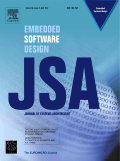
JOURNAL OF SYSTEMS ARCHITECTURE
Scope & Guideline
Shaping the Landscape of Hardware and Software Innovation
Introduction
Aims and Scopes
- Federated Learning and Machine Learning Optimization:
The journal prominently features research on federated learning techniques, including secure aggregation methods and device selection strategies, showcasing advancements in machine learning optimization tailored for distributed and resource-constrained environments. - Cybersecurity and Privacy-Preserving Techniques:
A significant emphasis is placed on cybersecurity measures, with numerous publications addressing privacy-preserving protocols, secure authentication frameworks, and robust encryption methods, particularly in IoT and cloud environments. - Real-Time and Embedded Systems:
Research on real-time systems and embedded architectures is a core focus, exploring scheduling algorithms, fault-tolerance mechanisms, and performance optimization strategies that cater to mixed-criticality applications. - Blockchain and Distributed Ledger Technologies:
The journal highlights the application of blockchain technology in various domains, including secure data sharing, decentralized authentication, and privacy-preserving data management, reflecting the growing interest in integrating blockchain with traditional systems. - Energy-Efficient Computing and Resource Management:
There is a consistent focus on energy-efficient design and resource management strategies in heterogeneous systems, particularly for applications in edge computing and IoT, reflecting the need for sustainable computing solutions.
Trending and Emerging
- Edge Computing and IoT Integration:
There is a significant uptick in research related to edge computing, particularly its integration with IoT systems, highlighting the need for low-latency processing and real-time data management in resource-constrained environments. - Machine Learning and AI in System Optimization:
The application of machine learning and AI techniques for optimizing system performance, including task scheduling and resource allocation, is a rapidly growing theme, indicating a shift towards intelligent systems design. - Secure and Privacy-Preserving Federated Learning:
Emerging methodologies in secure federated learning, including privacy-preserving mechanisms and decentralized model training, are gaining prominence, reflecting the need for collaborative learning without compromising data privacy. - Resilient and Fault-Tolerant Systems:
Research on resilient and fault-tolerant architectures, particularly in safety-critical applications, is trending, emphasizing the importance of reliability in the face of hardware and software failures. - Blockchain for Secure Data Management:
The integration of blockchain technology for secure data management and decentralized applications is increasingly featured, underscoring its potential to enhance security and transparency in various domains.
Declining or Waning
- Traditional Hardware Architecture Designs:
There is a noticeable decline in research centered on traditional hardware architecture designs, as more emphasis shifts towards hybrid and reconfigurable architectures, reflecting the industry's move towards flexibility and efficiency. - Conventional Cloud Computing Models:
Research focused solely on conventional cloud computing models is decreasing, as the journal pivots towards edge computing and hybrid cloud paradigms, emphasizing the need for low-latency and distributed processing solutions. - Legacy Security Protocols:
Papers discussing legacy security protocols are becoming less frequent, as the focus transitions to more advanced and adaptive security mechanisms that address contemporary challenges in cybersecurity. - Static Resource Allocation Strategies:
Static approaches to resource allocation are waning in favor of dynamic and adaptive strategies that can better handle the variability and unpredictability inherent in modern computing environments.
Similar Journals

Proceedings of the ACM on Measurement and Analysis of Computing Systems
Fostering Excellence in Computing Systems Analysis and ReliabilityProceedings of the ACM on Measurement and Analysis of Computing Systems, published by the Association for Computing Machinery, is a pivotal journal in the realms of Computer Science and Engineering, particularly esteemed for its comprehensive focus within the fields of Computer Networks and Communications, Hardware and Architecture, and Safety, Risk, Reliability and Quality. With an impactful presence since its convergence in 2019—and now spanning from 2021 to 2024—this journal upholds rigorous standards, reflected in its classification as Q1 in Computer Science (miscellaneous) and in key safety-related categories. Researchers and professionals will find the journal's emphasis on measurement and analytical solutions critical for advancing computational efficiency and system reliability in real-world applications. The journal does not currently have open access, maintaining its academic rigor and exclusive content that aims to serve the tech-savvy community dedicated to exploring and addressing the challenges within modern computing systems. With Scopus rankings demonstrating a steady impact in the field, particularly recognised within safety and reliability domains, the Proceedings of the ACM stands as an indispensable resource for those seeking to deepen their expertise and contribute to the evolving landscape of computing research.
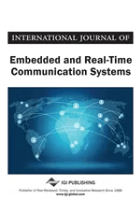
International Journal of Embedded and Real-Time Communication Systems (IJERTCS)
Empowering Researchers with Cutting-Edge Communication StrategiesInternational Journal of Embedded and Real-Time Communication Systems (IJERTCS), published by IGI Global, stands at the forefront of research in the domain of communication systems that operate on embedded and real-time frameworks. With its ISSN 1947-3176 and E-ISSN 1947-3184, this peer-reviewed journal has been a crucial platform for disseminating groundbreaking research and practical applications from 2010 to 2023. Although currently categorized in the Q4 quartile of computer science in Scopus, the journal offers unique insights into innovative communication strategies that bridge theoretical concepts with real-world implementation. Researchers, practitioners, and students alike rely on IJERTCS for comprehensive studies that address both contemporary challenges and future prospects in embedded systems. The journal enhances the academic discourse through highly relevant articles, supporting the development of robust communication technologies that are becoming increasingly vital in our interconnected world.
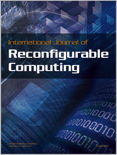
International Journal of Reconfigurable Computing
Advancing Knowledge in Reconfigurable TechnologiesWelcome to the International Journal of Reconfigurable Computing, a leading open-access platform dedicated to the exploration of innovative methodologies and applications in the field of reconfigurable computing. Published by HINDAWI LTD, this journal has been fostering scholarly communication since its inception in 2008. With an ISSN of 1687-7195 and an E-ISSN of 1687-7209, it offers researchers valuable access to the latest advancements and trending research in hardware and architecture, evidenced by its quarterly ranking in the Q4 category for 2023. Researchers, professionals, and students alike will find this journal an invaluable resource for staying updated in a rapidly evolving domain, notwithstanding its current Scopus ranking of 154 out of 177 within its category, reflecting a burgeoning opportunity for growth and engagement in this niche. Submitting their research to the International Journal of Reconfigurable Computing not only connects authors with a global audience but also contributes to the collective advancement of knowledge in this critical area. Explore the vast potential of reconfigurable systems and become part of a community dedicated to pushing the boundaries of computing technology.
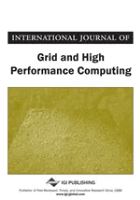
International Journal of Grid and High Performance Computing
Advancing the Frontiers of Computational ExcellenceThe International Journal of Grid and High Performance Computing, published by IGI Global, is a vital resource in the fields of grid and high-performance computing. With an ISSN of 1938-0259 and an E-ISSN of 1938-0267, this journal has been dedicated to advancing knowledge and innovation since its inception in 2009, and is set to continue publishing groundbreaking research until 2024. Despite its current Q4 categorization in the Computer Networks and Communications field, the journal plays a crucial role in fostering interdisciplinary collaboration and sharing pioneering work that addresses the growing demands of computational performance and network efficiency. Although it does not offer open access, subscribers gain invaluable insights into contemporary issues and developments within this rapidly evolving discipline. The journal aims to attract original research articles, reviews, and case studies, making it an essential platform for researchers, professionals, and students keen on exploring the complexities of grid computing and its applications.
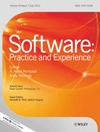
SOFTWARE-PRACTICE & EXPERIENCE
Exploring the intersection of theory and practice in software engineering.SOFTWARE-PRACTICE & EXPERIENCE, published by Wiley, is a prestigious journal that has significantly contributed to the field of software engineering since its inception in 1971. With a Q2 ranking in Software according to the 2023 category quartiles, it stands among the top tier of journals, positioned in the 79th percentile within Scopus’s Computer Science _ Software category. The journal focuses on disseminating high-quality research that reflects both academic rigour and practical application in software-related practices, ensuring that it remains relevant for researchers, professionals, and students alike. Although it does not currently offer Open Access options, it continues to provide invaluable insights and thorough explorations of contemporary issues in software development, methodology, and experience. As it converges toward 2024, SOFTWARE-PRACTICE & EXPERIENCE aims to foster a greater understanding of effective software practices in a rapidly evolving technological landscape.

FORMAL METHODS IN SYSTEM DESIGN
Innovating the future of hardware and software design.FORMAL METHODS IN SYSTEM DESIGN, published by Springer, is a pivotal journal in the fields of Hardware and Architecture, Software, and Theoretical Computer Science. With an ISSN of 0925-9856 and an E-ISSN of 1572-8102, it has been at the forefront of advancing the understanding and implementation of formal methods since its inception in 1992, with a convergence slated through 2024. Given its ranking in the Q3 category across multiple computer science disciplines, it serves as a critical resource for researchers and practitioners looking to enhance the reliability and performance of complex systems. The journal offers an excellent platform for disseminating high-quality research that addresses the rigorous analytical techniques required for system design, making it invaluable for academics, professionals, and students alike. Notably, FORMAL METHODS IN SYSTEM DESIGN is based in the Netherlands, with its offices located at VAN GODEWIJCKSTRAAT 30, 3311 GZ DORDRECHT, NETHERLANDS, and although it does not currently offer open access, the journal's comprehensive archive remains accessible for deeper research into the formal methodologies that shape contemporary computing paradigms.

International Journal of Web Services Research
Fostering Collaboration in Web Services InnovationThe International Journal of Web Services Research, published by IGI Global, is a premier forum dedicated to advancing research and innovation in the field of web services. With an ISSN of 1545-7362 and an E-ISSN of 1546-5004, this journal has steadily contributed to the discourse on computer networks, information systems, and software development since its inception in 2004. Based in the United States, the journal publishes high-quality research articles that delve into cutting-edge web service technologies and methodologies, making it an invaluable resource for researchers, professionals, and students alike. Although categorized in the Q4 quartile in 2023 across several classifications, its growing impact and relevance are reflected in its ongoing engagement with contemporary issues in the web services landscape. As an academic platform, it aims to provide a comprehensive understanding of the dynamics of web services and their implications for future technological advancements. Researchers are encouraged to contribute their findings to foster knowledge sharing and collaboration within this vital domain.
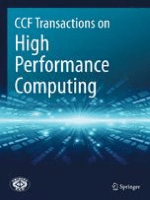
CCF Transactions on High Performance Computing
Catalyzing Innovation in Hardware and Software SystemsCCF Transactions on High Performance Computing, published by SPRINGERNATURE, is an esteemed academic journal dedicated to advancing research in the field of high-performance computing. With an ISSN of 2524-4922 and E-ISSN of 2524-4930, this journal provides a platform for disseminating innovative findings, methodologies, and technologies that shape computational practices within various domains. Operating from Germany, it serves a global audience, reinforcing its impact through an impressive categorization in the Q3 quartile across multiple fields, including Computer Science Applications and Information Systems. The journal, which covers research from 2019 to 2024, plays a crucial role in bridging gaps between theory and practical implementation in hardware architecture and software systems. Although it is not an open-access journal, its contributions are invaluable for researchers, professionals, and students invested in the continuous evolution of high-performance computing. With Scopus rankings that highlight its relevance and influence in the academic community, CCF Transactions on High Performance Computing remains a key resource for the latest developments in this dynamic and rapidly evolving discipline.
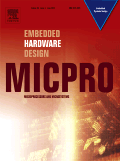
MICROPROCESSORS AND MICROSYSTEMS
Driving Insights in Hardware and Software IntegrationMICROPROCESSORS AND MICROSYSTEMS, published by ELSEVIER, stands as a pivotal journal in the fields of microprocessor technology and microsystem design, with a focus on cutting-edge research that bridges artificial intelligence, computer networks, hardware architecture, and software development. With an ISSN of 0141-9331 and an E-ISSN of 1872-9436, the journal is recognized for its significant contributions to the academic community since its inception in 1978 and continues to shape the discourse leading into 2024. Its impact is evidenced by its Scopus rankings, placing it among the top quartiles in multiple disciplines, including Q3 in Artificial Intelligence and Q2 in Computer Networks and Communications. Although it does not offer open-access options, the journal remains a vital resource for researchers, professionals, and students seeking to delve into innovative developments and applications within the realms of microprocessors and embedded systems. The journal is headquartered in Amsterdam, Netherlands, and aims to foster dissemination and discussion of scholarly work that advances the understanding of practical and theoretical aspects of microprocessor and microsystem technologies.

Cluster Computing-The Journal of Networks Software Tools and Applications
Pioneering Research in Networks and Software TechnologiesCluster Computing - The Journal of Networks Software Tools and Applications, published by Springer, is a premier academic journal catering to the vibrant fields of computer networks and software technologies. With an impressive impact factor and recognized as a Q1 journal in both Computer Networks and Communications and Software categories for 2023, it ranks within the top echelons of its field, boasting a Scopus rank of #50 out of 395 and #59 out of 407 respectively, highlighting its influence and reach. The journal, which has been in continuous publication since 2005, serves as a vital platform for groundbreaking research, offering insightful articles and tools that drive innovation in network computing. Researchers, professionals, and students are invited to contribute to and benefit from the dynamic discourse presented in this journal, which is pivotal for advancing knowledge and enhancing practical applications in a rapidly evolving technological landscape.